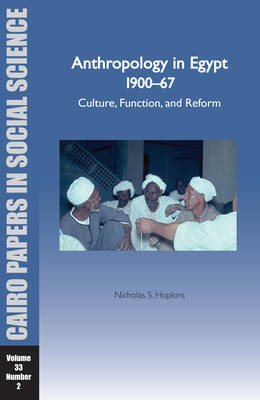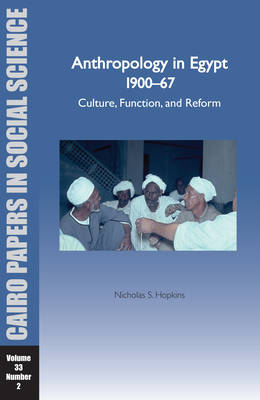
- Afhalen na 1 uur in een winkel met voorraad
- Gratis thuislevering in België vanaf € 30
- Ruim aanbod met 7 miljoen producten
- Afhalen na 1 uur in een winkel met voorraad
- Gratis thuislevering in België vanaf € 30
- Ruim aanbod met 7 miljoen producten
Zoeken
Anthropology in Egypt, 1900-67: Culture, Function, and Reform
Cairo Papers Vol. 33, No. 2
Nicholas S Hopkins
€ 33,95
+ 67 punten
Omschrijving
Anthropology as a discipline came to Egypt around 1900, as foreign anthropologists reported home on the culture they found. Gradually the intellectual approach was influenced by the functionalist school, stressing that a society consists of interlocking parts. As Egyptians took the lead in anthropology, in the 1930s, the discipline entered into the debate about the need to reform Egyptian society and culture especially in the rural areas, against a general background of functionalism. This approach dominated through the 1960s, when there was a break in Egypt because of the Six-Day War and in world anthropology because of the emergence of new intellectual models. This study traces the evolution of anthropology in Egypt through the stories of its practitioners such as Blackman, Galal, Evans-Pritchard, Hocart, Abbas Ammar, Hamid Ammar, Berque, Abou Zeid, el Hamamsy, Uways, and their contemporaries, showing their challenges and accomplishments.
Specificaties
Betrokkenen
- Auteur(s):
- Uitgeverij:
Inhoud
- Aantal bladzijden:
- 180
- Taal:
- Engels
- Reeks:
Eigenschappen
- Productcode (EAN):
- 9789774166853
- Verschijningsdatum:
- 27/03/2015
- Uitvoering:
- Paperback
- Formaat:
- Trade paperback (VS)
- Afmetingen:
- 140 mm x 213 mm
- Gewicht:
- 299 g

Alleen bij Standaard Boekhandel
+ 67 punten op je klantenkaart van Standaard Boekhandel
Beoordelingen
We publiceren alleen reviews die voldoen aan de voorwaarden voor reviews. Bekijk onze voorwaarden voor reviews.











